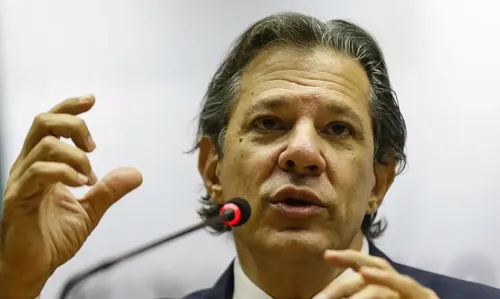
“It is an unquestionable fact that the world’s billionaires continue to evade our tax systems through a series of strategies”, said this Thursday (29), the Minister of Finance, Fernando Haddad, at the opening of the Financial G20. Haddad cited data from a European Union Fiscal Observatory report on tax evasion, which reveals that billionaires pay an effective tax rate equivalent to between 0 and 0.5% of their wealth.
“Colleagues, I sincerely wonder how we, the G20 Finance Ministers, allow a situation like this to continue. If we act together, we have the ability to make these few individuals make their contribution to our societies and to sustainable development of the planet.”
This Thursday, finance ministers and central bank presidents will discuss the proposal presented on Wednesday (28) by Brazil to create global taxation on large fortunes, presented by Haddad on Wednesday via videoconference. After testing negative for Covid-19, the minister attended the Biennial Pavilion at Ibirapuera in São Paulo in person this Thursday.
This Thursday afternoon, economist Gabriel Zucman presents to ministers the Brazilian proposal for taxation of the super rich and representatives of the United Nations and the Organization for Economic Cooperation and Development (OECD) bring the ongoing discussions on international taxation to the debate. At the end of 2023, the United Nations General Assembly approved resolution 78/230, “thus opening a new avenue for international taxation”, highlighted Haddad.
The OECD already works on two taxation parameters worldwide, aimed at big techs and large corporations. The Brazilian proposal emphasizes the need for a tax to also be applied to individuals and families with large fortunes.
At the end of his speech, the Minister of Finance announced that Brazil is seeking a declaration from the G20 on international taxation for the group’s Summit to be held in June in Rio de Janeiro.
Check out Haddad’s full speech
Ladies and gentlemen,
Welcome to our second day of meetings.
Today we will start with a topic that may be the key to solving many of the challenges we face. I talk about fair and progressive international taxation. Coming from a successful tax reform process in Brazil, I am sure that there is a lot that countries can do for themselves. However, effective solutions for the super-rich to pay their fair share of taxes depend on international cooperation.
This cooperation already exists. Over the last ten years, we have achieved very important advances in areas such as information exchange, transparency, and minimum levels of taxation. Here I want to recognize the work of the OECD and the G20 in the inclusive framework. We must work to complete this agenda in a balanced way and ensure the conclusion of the Pillar 1 negotiations. The OECD was invited to provide us with the history of the BEPS negotiations and the challenges that remain on the horizon. I want to thank the OECD for accepting our invitation
and congratulate them on the progress made so far.
Despite recent advances, it is an unquestionable fact that the world’s billionaires continue to evade our tax systems through a range of strategies. The EU Tax Observatory’s most recent report on tax evasion showed that billionaires pay an effective tax rate equivalent to between 0 and 0.5% of their wealth. Colleagues, I sincerely wonder how we, the G20 Finance Ministers, allow a situation like this to continue. If we act together, we have the ability to make these few individuals make their contribution to our societies and to the sustainable development of the planet. Therefore, I invited Professor Gabriel Zucman, one of the greatest experts on the subject in the world, to present us with a proposal for taxation of the super rich. I know there are different views on the topic in the room, but I hope the presentation is informative and paves the way for future evidence-based discussions. I believe that international wealth taxation should constitute a third pillar in our international tax cooperation agenda.
Finally, I want to welcome the fact that most countries in the world have clearly expressed a desire to deepen international tax cooperation through a United Nations Convention. At the end of last year, the United Nations General Assembly approved the
resolution 78/230, thus opening a new avenue for international taxation. While I know that opinions on this resolution vary within the G20, it is clear that the G20 cannot simply ignore a fact of such importance. That’s why we invite the United Nations
to present the prospects for the Convention going forward. I also want to thank the United Nations for accepting our invitation.
Ladies and gentlemen, I see no contradiction between the different international taxation agendas that we are bringing to the table. On the contrary, I want to call on the United Nations and the OECD to work together, combining the legitimacy and political strength of the former with the technical capacity of the latter. If we join forces and take into account the most advanced research in the area, we can continue to advance our international tax cooperation and reduce the opportunities for a small number of billionaires to continue taking advantage of holes in our tax system to avoid paying their fair contribution. Finally, ladies and gentlemen, I want to announce that this Presidency will seek to build a G20 declaration on international taxation by our ministerial meeting in July. We will consult all members and work together to have a balanced but ambitious document that reflects our legitimate aspirations.
Thank you very much.
Editing: Rodrigo Durão Coelho
Source: www.brasildefato.com.br

